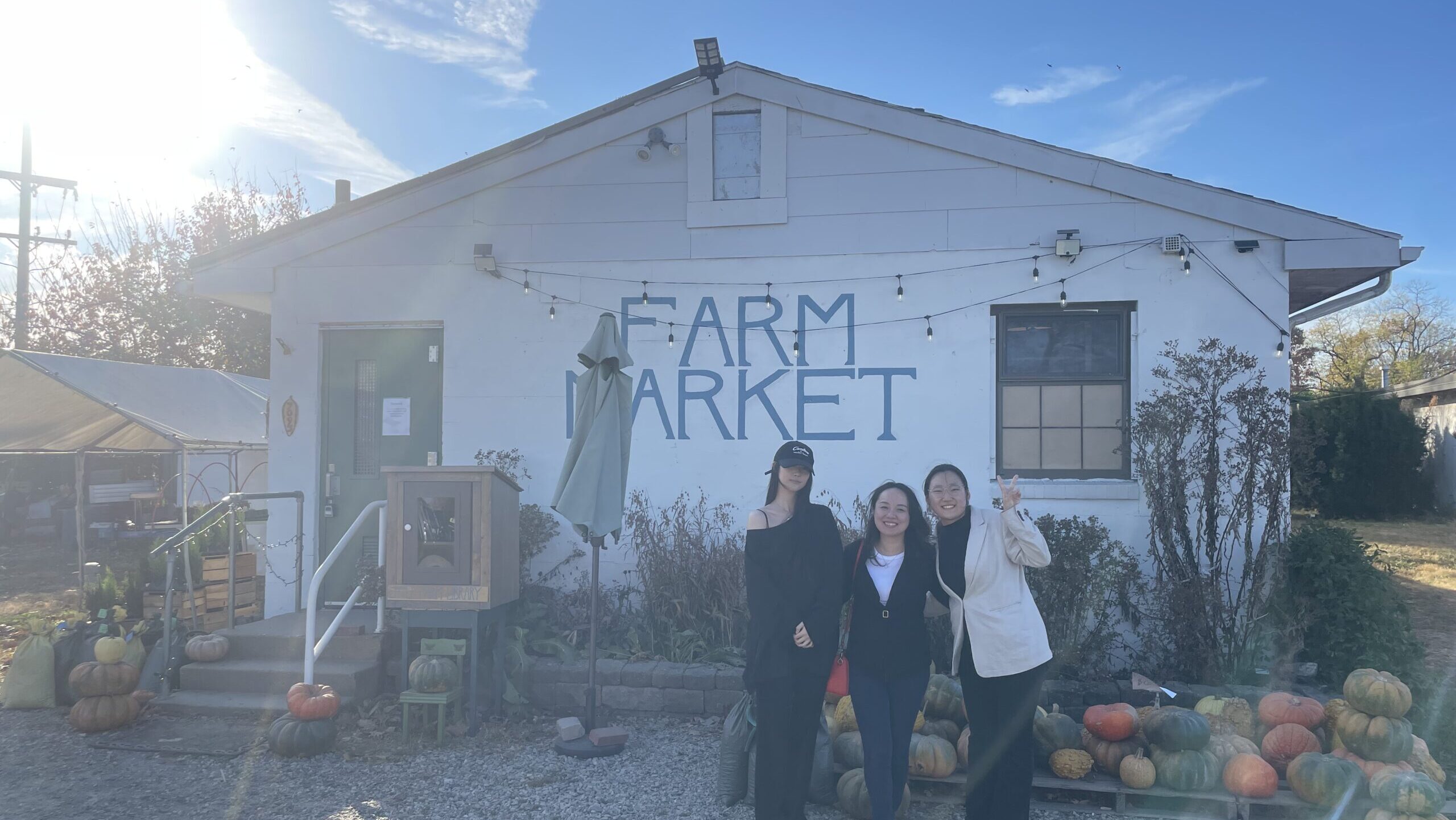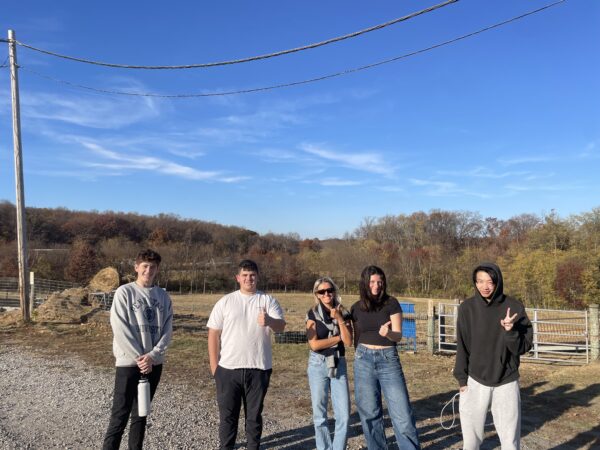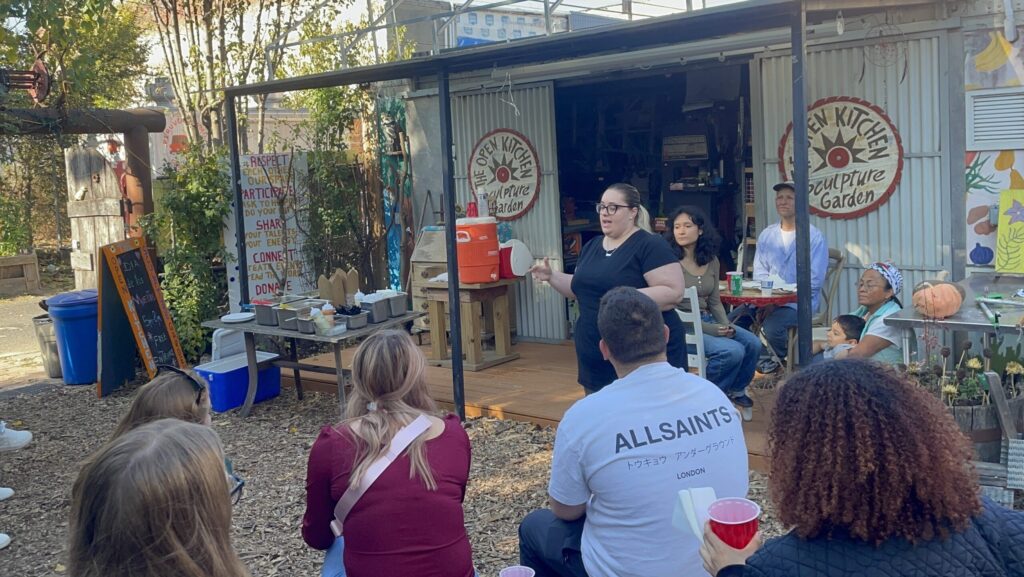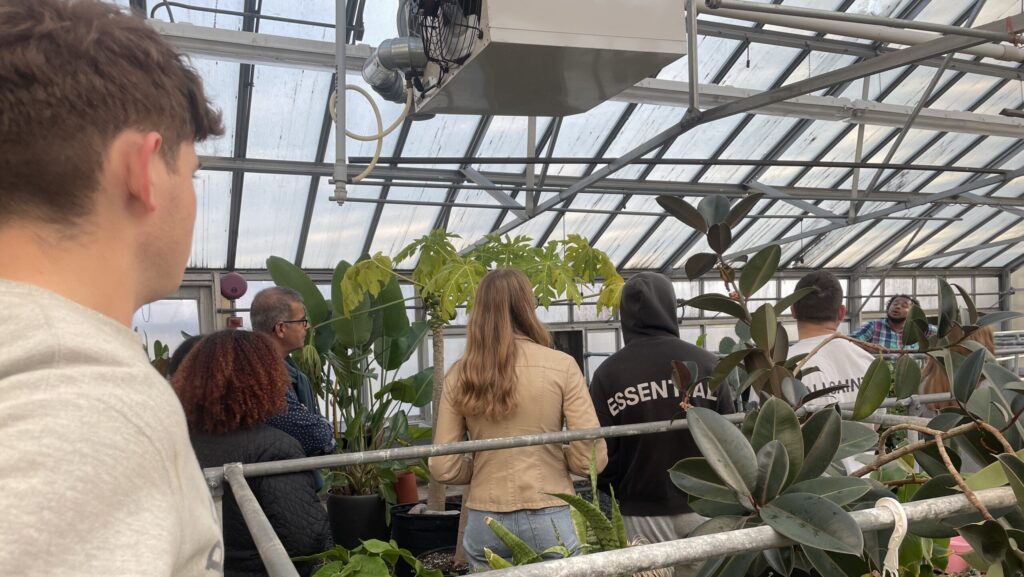
For a group of Penn State hospitality students, a recent visit to Philadelphia was more than just a field trip — it was an eye-opening experience that reshaped their understanding of food, sustainability, and community. Led by Carly Pourzand, director of community-driven impact at the Penn State Center Philadelphia, the Food Systems Tour provided a firsthand look at the city’s diverse urban food landscape, from bustling markets to school gardens and community farms. The yearly tour is in partnership with Dr. Amit Sharma and his course HM 407 – The Sustainable Fork: Food Systems Decisions for Away-From-Home Eating within the School of Hospitality Management.

As the students explored the city, they encountered food production, food justice, agriculture, and education initiatives they had never considered before.
“I think the biggest thing I learned was that the schools [we visited] in Philadelphia are stressing the importance of learning the agricultural side of the world,” shared Cole Brigucci, a junior in hospitality.
The journey began at Reading Terminal Market, where students saw how vendors balance culture and Philadelphia tradition with sustainability. For Gabriela Mutone, a senior studying hospitality management, the experience was particularly impactful.
“My favorite part was Reading Terminal Market and how they talked about sustainability and their different ways of impacting the environment,” she said. “It was [also] cool to see how urban farming is different from rural farming.”
Beyond the market, students visited local schools — such as the U School and W.B. Saul High School for Agricultural Sciences — where younger generations are learning about agriculture, nutrition, urban sustainability, and food justice. They also met with local business owners and food advocates, each sharing unique perspectives on sustainability and community-driven solutions.
The group heard from:
- Juan, an immigrant business owner of Brazas BBQ
- Pedro, the creator of The Open Kitchen Sculpture Garden
- Carmen, from Philadelphia’s Masa Cooperativa
- Student representatives from the University of Pennsylvania’s Quechua Club, a group dedicated to preserving the indigenous language and learning about masa production
- Madison Nardy, 215 People’s Alliance

The tour culminated at the W.B. Saul High School, which also includes Weavers Way CSA Farm, where students witnessed urban agriculture in action. The contrast between city farming and traditional rural agriculture sparked conversations about the evolving role of food systems in addressing sustainability challenges.
From an immigrant restaurateur’s journey to the collective efforts of urban farmers, students saw how food fosters connection — not just as consumers, but as active participants in a larger system.
“Explore your community and what is going on in these communities,” said Trinity Gutierrez, a senior. “We can all help these places — we can volunteer, buy from them, and spread the word.”
This immersive and experiential learning experience was made possible through Pourzand’s deep-rooted community connections, bridging Penn State’s academic curriculum with Philadelphia’s food landscape. For students, it was an unforgettable, hands-on education in sustainability that extended far beyond the classroom.

